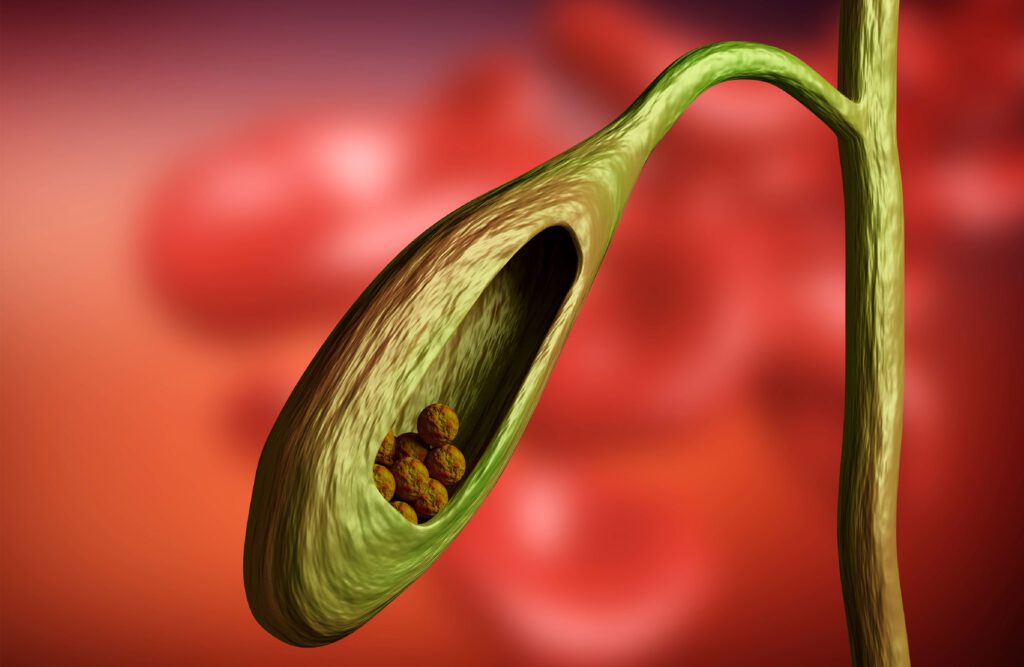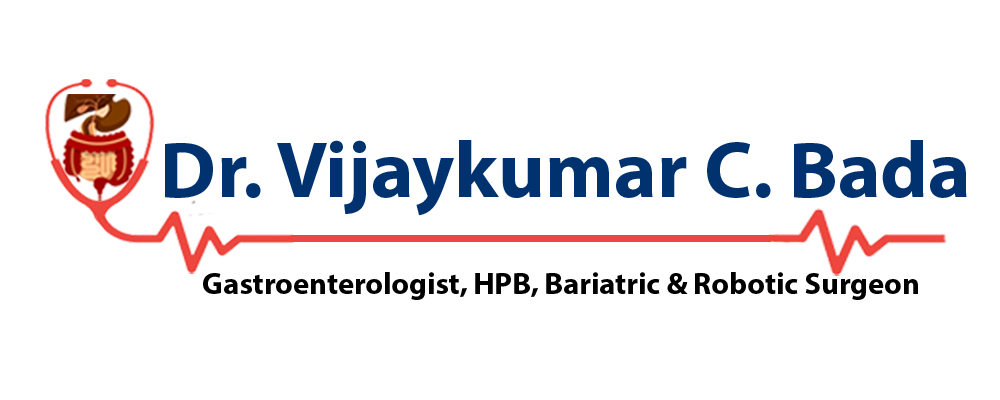Gallstones - Symptoms, Diagnosis, and Treatment

Gallstones are the most common disease in India, one can imagine, irrespective of gender or economic status. A recent study shows that approximately 24% of the Indian population suffers from gallstones. The occurrence of stones does not depend on age but on family history, food, and environment. People from the southern part of India have Pigment stones, whereas people from north India experience cholesterol or mixed stones. When most people experience asymptomatic gallstones, some need surgery and medication for gallstone removal.
What and where are these Gallstones?
When the digestive fluid called Bile gets deposited and becomes hard and forms pebble-like pieces, it forms gallstones in the gallbladder. Along with Bile, other components, such as cholesterol and bilirubin, are responsible for Gallstone formation. The gallbladder is a small, pear-shaped organ in the abdomen on the right side beneath the liver. Gallstones’ size ranges from the size of a sand grain to a golf ball and can be from one to as many at the same time.
The size of gallstones increases as the Bile continues to wash over them and gets collected. Small size gallstones create more problems as they tend to move and get stuck anywhere, whereas large stones tend to stay in one place. Causes such as high cholesterol in bile, high amount of bilirubin, or when the gallbladder is not able to empty correctly can lead to gallstones.
Symptoms to look out for:
Although gallstones are asymptomatic (show no symptoms), if they cause the blockage, they may cause mild or intense and sudden pain on the upper right side of the abdomen or stomach center. The pain does not occur due to gallstones but the path that gets blocked by them. The pain intensity can be from a scale of 1 to 10 and can last from several minutes to several hours, and can cause from time to time, especially after someone eats food that is high in fat.
The following symptoms can indicate gallstones:
- Back pain or pain in the right shoulder
- Nausea or vomiting
- High-temperature
- Increased heart rate
- Yellowing of the skin (due to bile collection)
- Diarrhoea
- Dark color urine
What can a doctor do for Gallstones?
A doctor can diagnose gallstones through two different techniques: a physical examination and a diagnostic test. In a physical exam, the doctor checks the eyes and skin for any visible color change. Yellow skin or eyes show signs of jaundice due to the body’s high amount of bile juice.
Diagnostic tests include:
- Ultrasound: It will produce an image of your abdomen and will help in the confirmation of gallstones. A device called a transducer is moved back and forth in the stomach to locate the gallstones, which send signals to produce images on the screen.
- Blood test: Through blood tests, the doctor can measure the amount of bilirubin which will help to determine the liver function. It will also help to determine any other complications which can occur due to gallstones.
- Other Scans: Abdominal CT scan will take liver and abdomen pictures, and a Gallbladder radionuclide scan is done with the help of radioactive, which travels to the liver and gallbladder through blood and while the scan confirms glass tones or any infection.
Are Gallstones curable? :
Most of the time, people with gallstones don’t need treatment until and unless they are causing some serious infections or hampering the body’s functions. Doctors recommend the treatment based on the symptoms and results of the diagnosis. There are few surgical and non-surgical ways to remove gallstones.
Surgical or non-surgical ways to remove gallstones:
- Cholecystectomy is a surgical way to remove gallstones. The doctor recommends removing the gallbladder as Bile will flow directly from the intestine to the liver so that stones don’t occur again.
- Patients can take medications to dissolve the stones orally or through shock wave therapy, whichever is efficient as per doctors’ recommendations.
It is always advised to get medical support in case of any of the above-mentioned symptoms or any form of stomach discomfort.
Dr. Vijaykumar C. Bada is a gastroenterologist based in Hyderabad with 22 years of experience. He specializes in Laparoscopic surgery, Bariatric surgery, Colorectal surgery, etc. To date, Dr. Vijay has treated thousands of patients with Gallstones through both surgical and non-surgical ways.
Have Any Question?
Are you looking for a solution to your problem? You can call us or just drop your question here.
Stay Connected with
Dr. Vijaykumar C. Bada

Dr. Vijaykumar C. Bada is the best Gastroenterologist in Hyderabad city of Telangana.
- Flexible Appointments & Urgent Care
Dr. Vijaykumar C. Gastroenterologist
Design & Developed by Pointofviewer
Copyright © 2021. All rights reserved.
